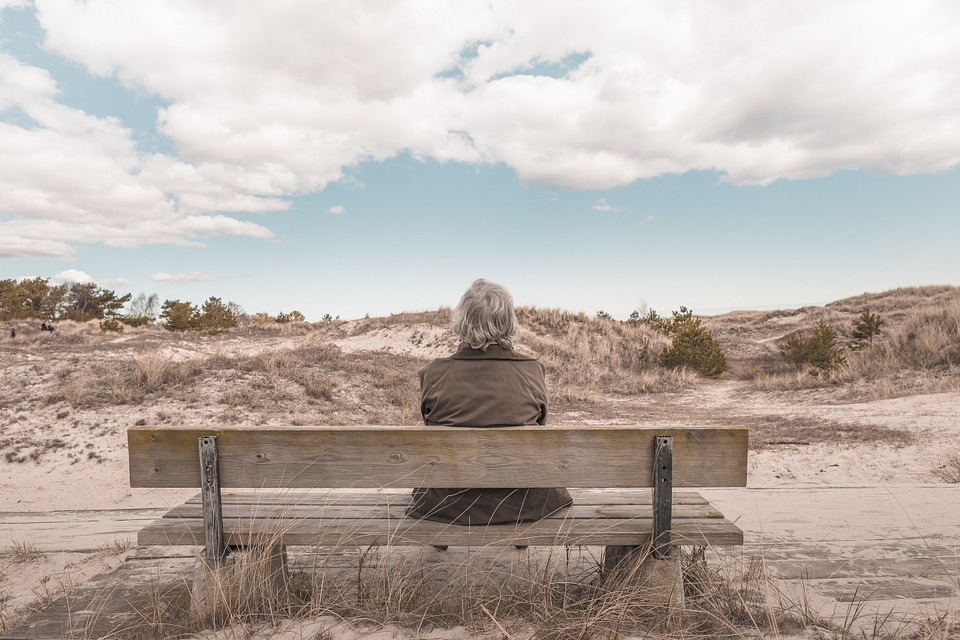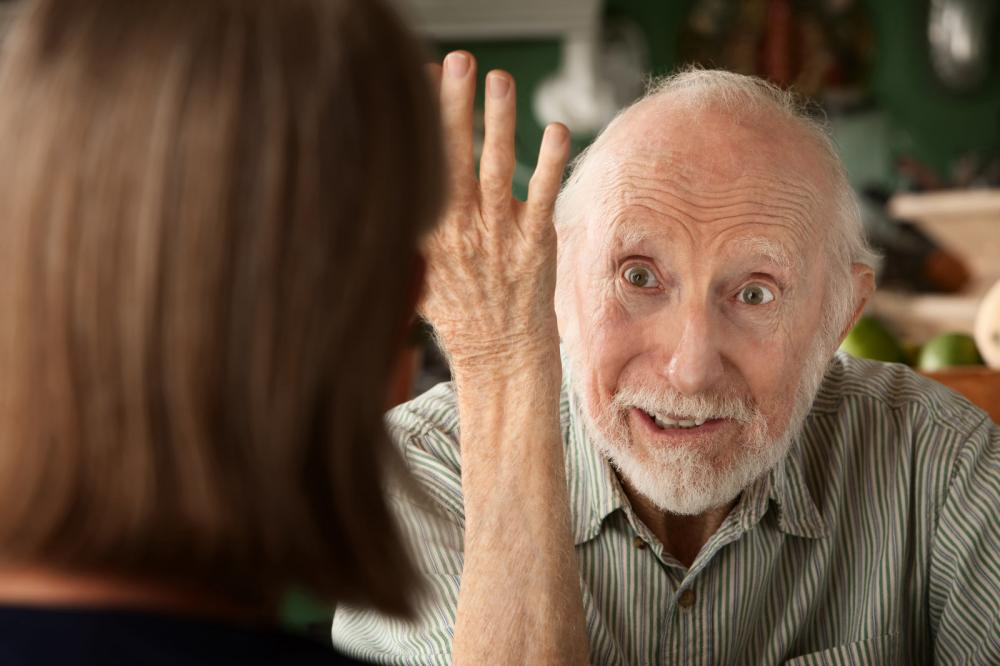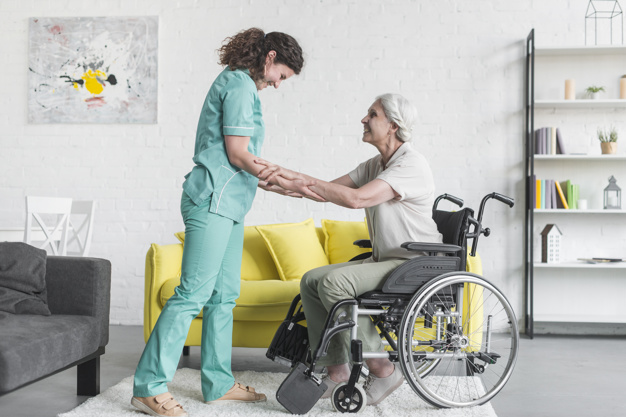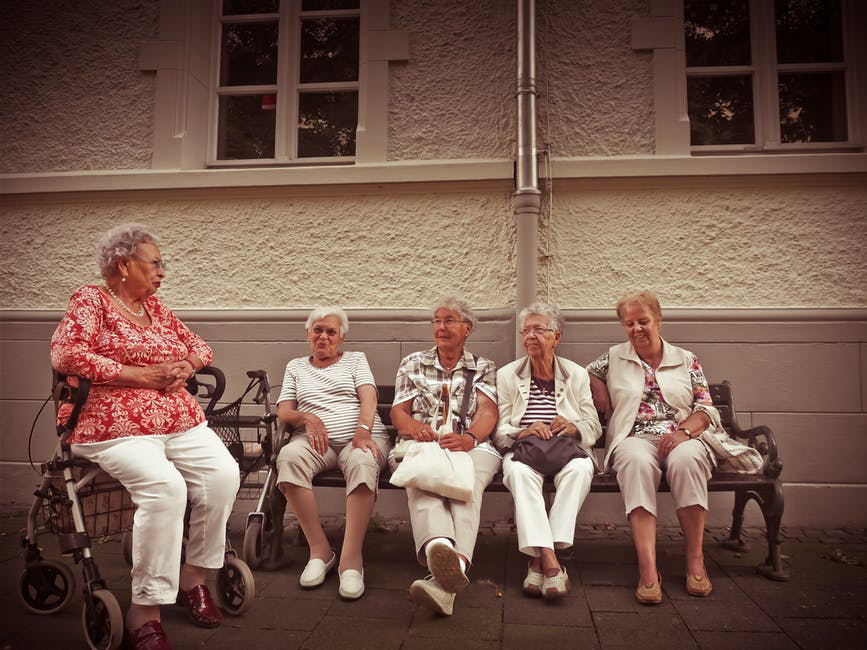Early Warning Signs of Alzheimer’s
Neurodegenerative diseases such as Alzheimer's don’t manifest suddenly. Before the disease becomes apparent, there are multiple early warning signs that become noticeable. People often associate Alzheimer’s with confusion and forgetfulness and overlook other signs that aren’t that obvious. Mainly a change in the behavior could be a major sign of brain disease.Read more
Dealing with Difficult Alzheimer’s Behaviors
Alzheimer’s disease involves progressive deterioration of the brain which results in a number of problems related to cognition and memory. Perhaps the most difficult part of taking care of a loved one that’s suffering from Alzheimer’s isn’t the physical aspect of it, but being on the receiving end of one of their unfamiliar, disturbing, or even violent outbursts.
Taking care of a senior that’s difficult to deal with due to Alzheimer’s is a true testament to devotion and love. That’s why, in this blog, we’ll present a few effective and easy ways of dealing with difficult Alzheimer’s behaviors.Read more
Steps for Choosing a Memory Care Community for Your Loved One
Parting with a loved one can be a trying experience, especially if that loved one is a parent or a grandparent. But sometimes, you’re not mentally and physically equipped to provide them as with the care they deserve. In fact, if your loved one is suffering from ailments like dementia or Alzheimer’s, it’s best that you find them a community that can see to their needs and provides memory care 24/7.Read more
Early Depression: The Symptoms and Causes
Depression is one of the most common mental health disorders globally. It is characterized as a mood disorder that causes a recurrent feeling of sadness and loss of interest. In the United States alone, more than 16 million adults suffer from depression each year. Not only does this mental health condition cause people to lose pleasure from everyday life, it can also lead to suicide in its most extreme form. It is a condition that is not defined by a specific age group, gender, or ethnicity.Read more
How Seniors Can Give Their Immune System a Boost
Do you find yourself getting sicker now as compared to when you were younger? Our immune system is a natural defense mechanism but it tends to get weaker as we age.
The good news is, as compared to other bodily functions, a bit of extra care can go a long way in keeping our immune systems healthy, even in older age.Read more
Lack of Sunlight: The Effects of Vitamin D Deficiency in Seniors
A good balance of essential minerals and vitamins is extremely important for maintaining optimal health. One of the most important vitamins for the body is vitamin D. It provides your body with the regulation and maintenance of calcium and phosphorus levels in the body. These two components are vital for promoting healthy bone growth and keeping the immune system in check.Read more
Enhancing Quality of Life Through Art Therapy for Seniors Loved Ones
Over 2 million Americans aged 65 and above shows signs of depression. Since clinical depression is a primary predictor of suicide rates in any country, this age group which only makes up 13% of the total population accounts for 20% of total suicides committed.Read more
Benefits of Gardening for Older Adults
Gardening can be a spiritual healing process for people if done right. This applies to people of all age groups. It has a positive impact on one’s mental and physical health and makes for a very productive and meaningful activity!
So when it comes to the benefits of gardening for older adults, there’s a whole list to go through!Read more
Mistakes to Avoid in Retirement
Over the past two decades, the number of Americans who choose to retire has doubled. Presently, there are around 10,000 people who are retiring each day. Moreover, it has been predicted that these figures will increase in the near future, with around 12,000 people retiring daily within the next decade.Read more
Fall Prevention for Elderly Loved Ones
A fall from your youthful prime is enough of a tragedy to live with; our elders can’t deal with more shocks. More than 1 out of every fourth person suffers a fall every year but less than 50% seek medical. With a reluctance to get cured, it seems like prevention is a more a likeable option for the senior members of the community.Read more








